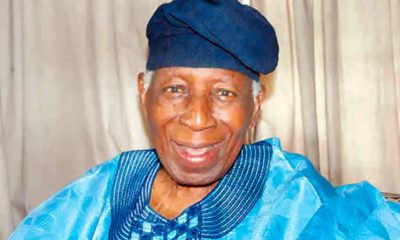Africa
Nine child workers die in Egypt as bus plunges into the Nile

Nine child workers die in Egypt as bus plunges into the Nile
At least 10 female farm workers, nine of them children, died in Egypt on Tuesday when a minibus plunged off a river ferry and into the Nile northwest of Cairo, the health ministry said.
“The toll is at 10 and could rise,” ministry spokesman Hossam Abdelghaffar told AFP.
Reporting the accident, the state’s flagship Al-Ahram newspaper said the driver, who had released the handbrake, was arrested while trying to flee.
He had “a verbal argument” with one of the passengers before getting out of the bus, the paper said.
Two of the victims — all of whom worked on an “export-oriented fruit farm” — were 13 years old, according to a list published by Al-Ahram.
The rest were 16 and younger, except for one victim who was identified as a 40-year old woman.
The vehicle sank at the village of Abu Ghalib, some 50 kilometres (31 miles) northwest of the capital.
Villagers used small wooden boats to row out and help search-and-rescue workers look for survivors, as relatives waited anxiously on the banks of the narrow stretch of the Nile.
A crane was finally able to lift the minibus from the water, after rescuers and locals had swum out to extract victims from the windows of the submerged vehicle.
READ ALSO:
- Why Usyk will be stripped of title despite win over Fury
- Ondo monarch loses position after 29-year legal tussle
- DSS gives updates on ‘manhood theft’ in Abuja
- Seven Soldiers, several terrorists killed in Niger Republic clash
Nine injured passengers — most of them also minors, according to al-Ahram’s list — were taken to nearby hospitals for treatment, the health ministry said in a statement.
A search operation was “ongoing” into the evening for five more passengers who were unaccounted for, Al-Ahram said.
The ministry of social solidarity said it would provide financial compensation “to the families of the deceased and injured”.
After carrying out an initial investigation at the scene, the public prosecutor’s office ordered a technical inspection of the minibus to try to determine “the reasons it had plunged into the water”, Al-Ahram reported.
Commuter accidents are common in Egypt, especially in agricultural areas along the Nile and adjoining streams, where small, overloaded boats ferry farmers and workers back and forth.
At least 1.3 million children are engaged in some form of child labour in the Arab world’s most populous nation, official figures show.
Most do unpaid work on family farms, according to the International Labour Organization.
However, children are also frequently sent to work on large-scale export-oriented farms, according to rural sociologist Saker al-Nour, who has studied agricultural labour conditions extensively.
“These accidents happen repeatedly because girls are packed, in their own words, like sardines into these minibuses” to go and work in “terrible conditions”, he told AFP.
Nine child workers die in Egypt as bus plunges into the Nile
AFP
Africa
Okada rider allegedly stabbed to death by wife over money

Okada rider allegedly stabbed to death by wife over money
A Bodaboda operator identified as Geoffrey Ouma, was allegedly stabbed to death by his wife in their home in Ongata Rongai town, Kenya after he returned with less money than usual.
Witnesses reported that the man fondly called Jeff, had just come back from work, having earned significantly less due to heavy rainfall affecting business.
His wife confronted him about the household items that they lacked and demanded that he provided the money to get them. When he was unable to do so, an argument ensued between them.
READ ALSO:
- Police rescue two persons abducted in Lagos
- Miyetti Allah accuses Benue community of poisoning 20 cows
- Wike’s aide slams Atiku, says it’s too late to buy integrity
In a fit of rage, she rushed to the kitchen to grab a knife.
Sensing the imminent danger, the Bodaboda operator attempted to flee but slipped and fell on the floor.
The wife then stabbed him in the chest, ending his life instantly.
By the time neighbors arrived, it was too late; he was already dead.
The two have been married for around 5 years and have a child.
It was gathered that the Ongata Rongai Police have arrested the woman.
Okada rider allegedly stabbed to death by wife over money
Africa
W’African juntas impose levy on imported goods from ECOWAS nations

W’African juntas impose levy on imported goods from ECOWAS nations
West African neighbours Mali, Burkina Faso and Niger have announced a new 0.5% levy on imported goods as they seek to fund a new three-state union after leaving the larger regional economic bloc, they said in a statement.
The Alliance of Sahel States began in 2023 as a security pact between the military rulers of the three countries, who all took power in coups in recent years.
It has since grown into an aspiring economic union with plans for biometric passports and closer economic and military ties.
The levy was agreed on Friday and will take effect immediately.
It will affect all goods imported from outside the three countries, but will not include humanitarian aid, the statement said.
It will “finance the activities” of the bloc, it said, without giving details.
READ ALSO:
The move ends free trade across West Africa, whose states have for decades fallen under the umbrella of the Economic Community of West African States (ECOWAS), and highlights the rift between the three states that border the Sahara Desert and influential democracies like Nigeria and Ghana to the south.
The juntas of the three countries announced plans to leave ECOWAS last year, accusing the bloc of failing to assist in their fight against Islamist insurgents and ending insecurity.
ECOWAS had imposed economic, political and financial sanctions on the three in a bid to force them to return to constitutional order, to little effect.
Mali, Burkina Faso and Niger are some of the poorest countries in the world and have been overrun by an armed Islamist insurgency over the past decade.
The violence, committed by groups linked to al Qaeda and Islamic State, has killed thousands, forced millions to flee, and eroded faith in the democratically-elected governments who initially struggled to contain it.
W’African juntas impose levy on imported goods from ECOWAS nations
Africa
Niger coup leader sworn in as president for five years

Niger coup leader sworn in as president for five years
Niger’s military ruler Gen Abdourahamane Tchiani has been sworn in as the country’s president for a transitional period of five years.
Tchiani has led the country since 2023, after he deposed Niger’s elected president, Mohamed Bazoum.
On Wednesday, Tchiani took the presidential office under a new charter that replaces the West African country’s constitution.
He was also promoted to the highest military rank of army general in the country and signed a decree ordering that all political parties be dissolved.
During the ceremony in Niamey, Tchiani said of his new military rank, “I receive this distinction with great humility… I will strive to live up to the trust placed in me.”
The transition to democratic government is consistent with the recommendations of a commission formed following national deliberations.
The new charter states that this five-year timeframe is “flexible” based on the country’s security position.
READ ALSO:
- AI will replace doctors, teachers, others in 10 years – Bill Gates
- Senate seeks FG’s immediate intervention to slash data prices
- Reno Omokri: Nigeria gives more opportunities than US, Britain, Canada
Niger has been plagued by Islamist attacks for years, which was one of the reasons junta officials staged their coup.
The military takeover came after a number of others in the region; adjacent Mali, Guinea, and Burkina Faso are also ruled by dictatorships.
All four countries have split ties with erstwhile colonial power France, forming new alliances with Russia.
And all save Guinea have pulled out of ECOWAS, the West African regional group.
Niger’s relations with ECOWAS broke down when the junta demanded a three-year transition period to democratic governance directly after the coup.
Ecowas labelled this plot a “provocation” and vowed to interfere with force before eventually backing down.
Gen Tchiani’s regime is prosecuting former President Bazoum on charges of high treason and damaging national security.
Bazoum and his wife remain in the presidential palace, despite the fact that his son was granted provisional freedom in January.
According to state-run news agency ANP, Gen Tchiani stated that Niger’s new charter adheres to traditional constitutions while also implementing “unprecedented measures to protect our natural resources so that Nigeriens truly benefit from the exploitation of their wealth.”
Niger coup leader sworn in as president for five years
-

 Education1 day ago
Education1 day agoErudite mass comm lecturer Oscar Odiboh becomes full professor at Delta State University
-

 metro2 days ago
metro2 days agoAutopsy reveals cause of Nigerian boxer death during fight in Ghana
-

 Entertainment2 days ago
Entertainment2 days agoA colleague raped me, Actress Lolo 1 alleges
-

 metro2 days ago
metro2 days agoScavenger killed, many injured as military grenade explodes in Lagos
-

 Sports2 days ago
Sports2 days agoWife of Manchester United goalkeeper, Onana, robbed of £62,000 handbag, Rolex
-

 metro1 day ago
metro1 day agoNurse leaves US, seeks new life in Nigeria, says everything not money
-

 metro1 day ago
metro1 day agoBreaking: Former Oyo governor Olunloyo dies at 89
-

 International2 days ago
International2 days agoTrump: VOA goes off air in Nigeria, Ghana, others













